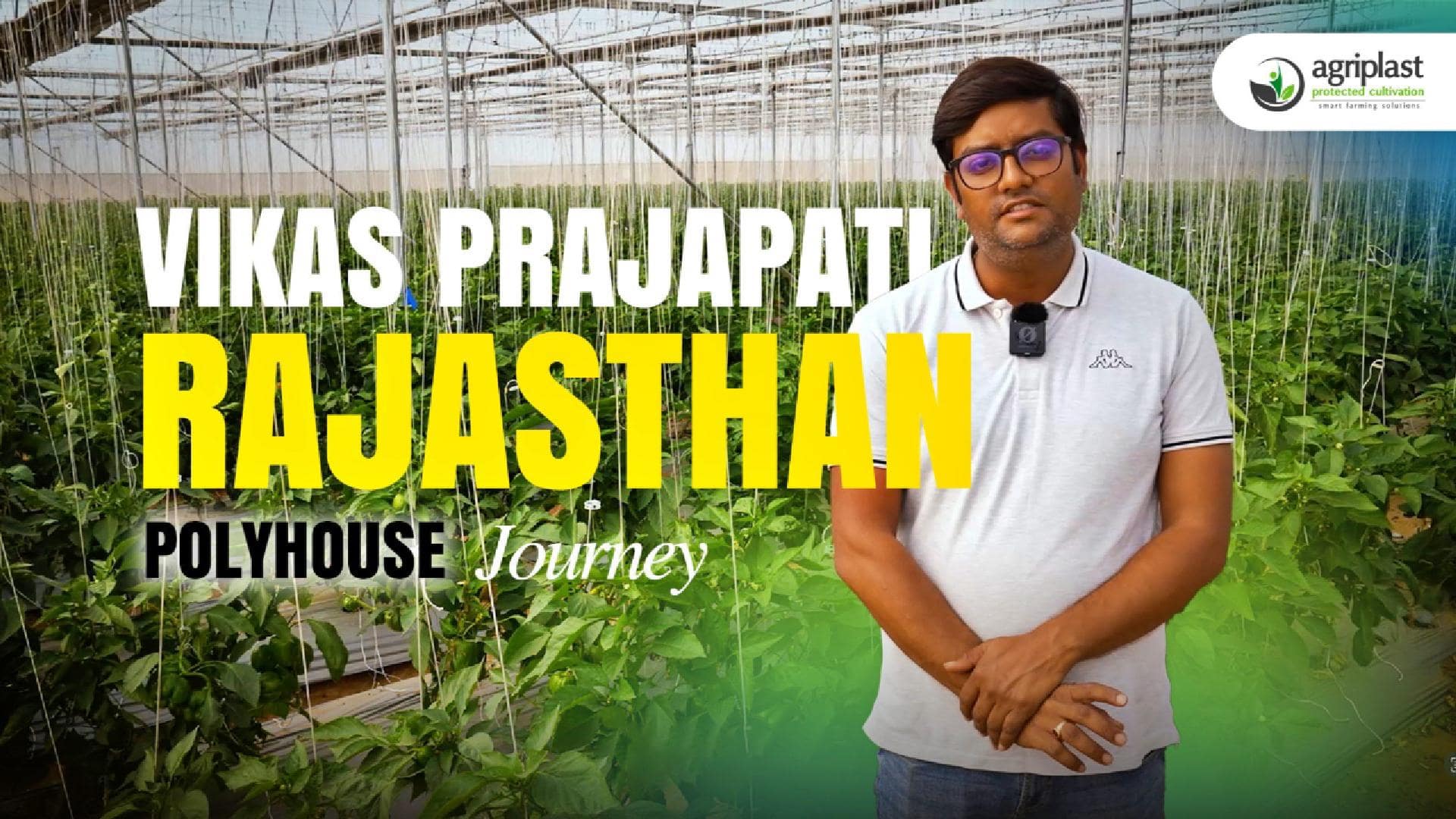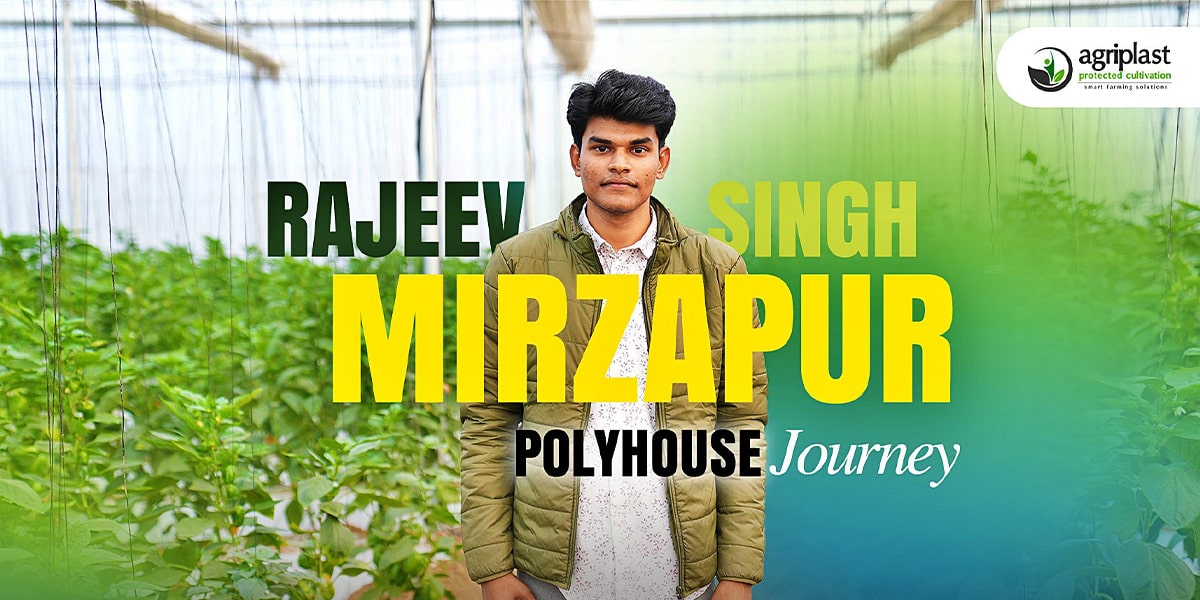Unleash Your Farm's Potential with Advanced Climate Control
As one of the leading polyhouse manufacturers in India, Agriplast Protected Cultivation consistently strives to provide modern farmers with cutting-edge protected cultivation structures designed to meet the diverse needs of various crops. One of the most critical aspects of successfully cultivating high-quality crops within polyhouses, greenhouses, and net houses is the ability to maintain precise control over the growing environment, particularly concerning temperature, humidity, and light conditions.

Effective climate control not only ensures that each crop receives the optimal conditions necessary for growth and development but also enables growers to utilize their protected cultivation structures year-round, regardless of external weather fluctuations. By adopting smart climate control solutions and technology, farmers can unlock their farm's full potential, enhancing crop quality, productivity, and profitability.
In this guide, we will explore the significance of climate control within Agriplast's protected cultivation structures and delve into various advanced technologies and management strategies that can help growers optimize temperature, humidity, and light conditions for a wide array of crops. Armed with these insights, farmers can confidently use their Agriplast structures to cultivate the highest quality produce, surpassing market expectations and reaping the rewards of their investment in protected cultivation.
The Significance of Climate Control in Protected Cultivation Structures
Climate control plays a pivotal role in the success of any protected cultivation operation. By maintaining ideal temperature, humidity, and light conditions within Agriplast's polyhouses, greenhouses, and net houses, farmers can ensure optimal growth, development, and overall performance of their crops regardless of external weather conditions. Moreover, precise climate control allows growers to cultivate a broad range of crops – including sensitive, high-value varieties – within their Agriplast structures, thereby expanding market opportunities and bolstering farm profitability.
Key Environmental Parameters to Manage in Agriplast's Protected Cultivation Structures
To achieve the best possible climate control within Agriplast's protected cultivation structures, it's essential to understand and manage several crucial environmental parameters:
1. Temperature: Each crop has specific temperature requirements for optimal growth. By maintaining suitable temperatures within your protected cultivation structure, you can promote healthy crop development, reduce the risk of thermal stress, and maximize yield potential.
2. Humidity: Relative humidity plays a significant role in various plant processes, such as photosynthesis, transpiration, and nutrient uptake. Proper humidity management within Agriplast's structures can help prevent common issues like mold, mildew, and pest infestations while facilitating optimal crop growth.
3. Light Conditions: Light is one of the most critical factors in plant growth. Ensuring the right amount and quality of light within your protected cultivation structure can profoundly impact plant development, yield, and crop quality.
Technologies to Enhance Climate Control within Agriplast's Protected Cultivation Structures
There are numerous cutting-edge technologies and solutions available to help you optimize climate control within Agriplast's polyhouses, greenhouses, and net houses. Some key examples include the following:
1. Automated Climate Control Systems: These systems use sensors to monitor temperature, humidity, and light conditions continuously. They enable precise adjustments to climate parameters, allowing you to maintain ideal growing conditions with minimal manual intervention.
2. Ventilation and Cooling Systems: Adequate ventilation and cooling within Agriplast's structures can help reduce temperatures, maintain balanced humidity levels, and ensure uniform air distribution. An efficient system can be a combination of roof vents, side vents, and evaporative cooling systems.
3. Heating Systems: For growers in regions with cold climates or where specific crops require higher temperatures, installing energy-efficient heating systems like radiant heaters, forced-air heaters, or geothermal heating systems can be vital in maintaining optimal temperature conditions within Agriplast protected structures.
4. Shading Systems: By installing adjustable shading solutions like retractable screens and shade cloths within your Agriplast structure, you can regulate the amount of sunlight that reaches the crops, protecting them from excessive heat and radiation.
Climate Control Management Strategies for Enhanced Crop Performance
To make the most of climate control technologies, monitoring environmental parameters within your protected cultivation structures is crucial. Here are a few strategies worth considering:
1. Continuous Monitoring: Regularly observe and record data related to temperature, humidity, and light conditions within your Agriplast structure. By tracking this data, you can identify trends and potential issues and make informed decisions about necessary adjustments to maintain optimal conditions.
2. Effective Irrigation and Fertigation: By implementing efficient irrigation and fertigation systems that regulate water and nutrient supply according to the specific needs of various crops, you can enhance humidity and temperature management while promoting optimal nutrient absorption and plant development.
3. Crop Selection and Spacing: Choose crop varieties suited to the conditions within your protected cultivation structure and maintain adequate spacing between plants. This ensures that each plant receives the necessary light, nutrients, and airflow, resulting in healthy, high-quality crops.
Conclusion
Climate control lies at the heart of successful, sustainable, protected cultivation operations. By understanding the significance of temperature, humidity, and light conditions within your Agriplast polyhouses, greenhouses, and net houses, you can harness innovative technologies and effective management strategies to create the perfect growing environment for a wide range of crops.
Maximize the potential of your Agriplast Protected Cultivation structure by mastering climate control and unlocking your farm's full potential for unparalleled crop growth, quality, and profitability. As a leading polyhouse manufacturer in India, Agriplast offers cutting-edge greenhouse solutions that are perfect for farmers who want to grow crops year-round. Contact us today to learn more about our innovative products and how they can benefit your farm.



















